

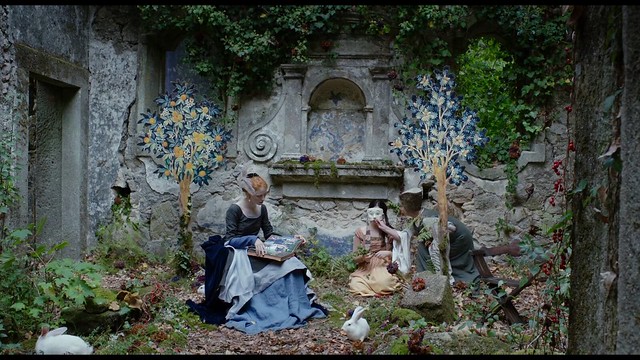
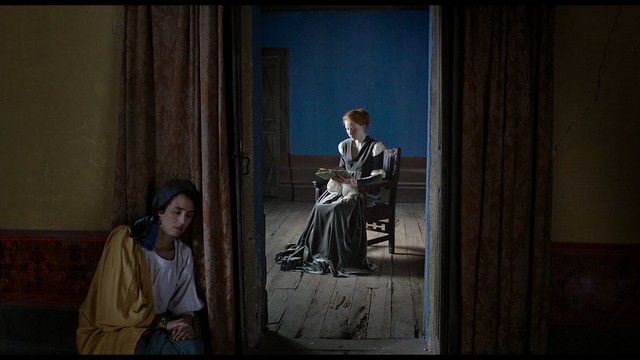
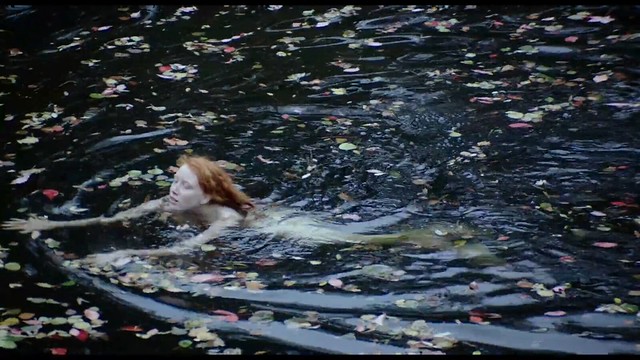
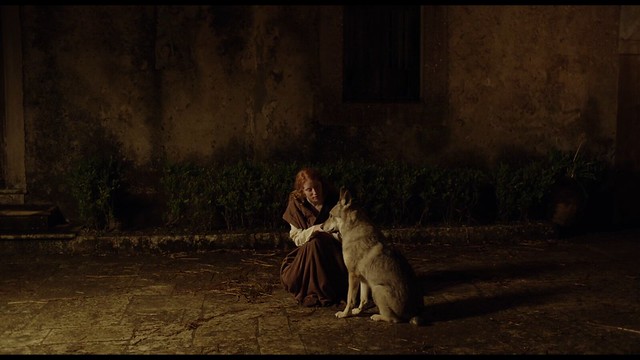
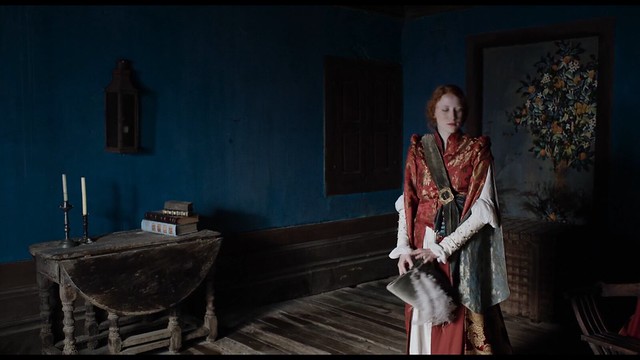

Rita Azevedo Gomes's The Portuguese Woman is a quietly radical feminist film in the highest order. The director's formalist approach here produces a stunningly beautiful images of an unnamed, young Portuguese woman (Clara Riedenstein), a Botticelli-an beauty with fiery hair, as she persevere more than a decade for her husband, Lord Von Ketten (Marcello Urgeghe), also known as the Lord of Chains (wink wink), to come home from endless war against a bishop of Trent. Mainly situating the camera on Riedenstein with shallow depth of field and playfully manipulating foreground and background, Gomes creates the Portuguese woman's own world in extreme details and full of life that is devoid of the usual drab domesticity of women in waiting depicted in films.
Soon after arriving in a ramshackled castle on the top of the hill, Von Ketten says farewell to his young wife, to go off to war in Italy. As a young, newly wedded woman in a rugged foreign land, the unnamed Portuguese woman seems to be resigned to the fate that is dealt for her. But instead stewing in misery, she sets out to make the new environment home, away from her life near the sea back in Portugal. The contrast can not be clearer - she is a realist, saying excessive love is a dream, not reasoning. While men endlessly toil in valorization of war and honor, she flirts with life's ups and and downs as if everything has equal value, even life and death. It is told like a moral tale in singing, by Fassbinder regular Ingrid Caven, who appears throughout the film, twirls around in modern dresses, singing in different languages.
While Von Ketten is wasting away from his wounds in countless battles, the woman delves in many hobbies, bears and brings up two children, flirts with her visiting handsome cousin who studies in Bologna, raises an wolf cub. She might seem lonely and tired of waiting for the man she loves, but she leads a full life.
There are certain filmmakers who uses the static, meticulously framed, tableau style approach. Here, Gomes uses to create frame-within-a-frame, a hidden world. Each shot with its carefully arranged colors and props, resemble renaissance paintings. Radical in its approach, subtle in its messages, sublime in its presentation, A Portuguesa is a stunning film about a woman's world full of life.